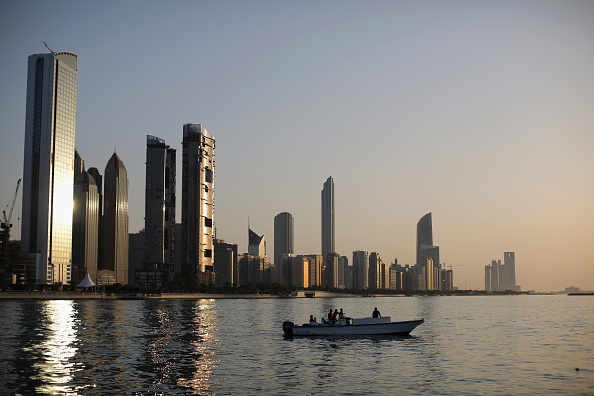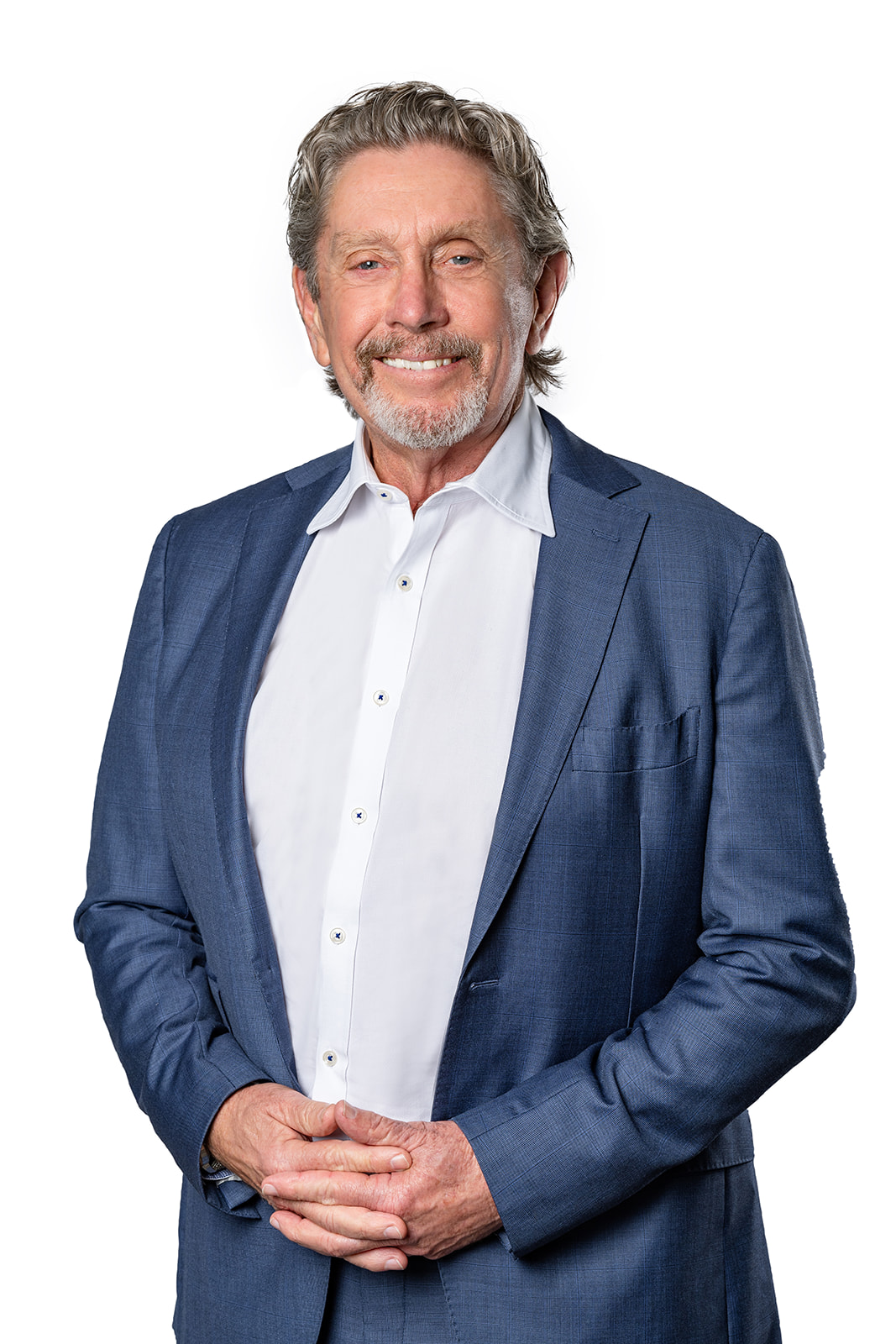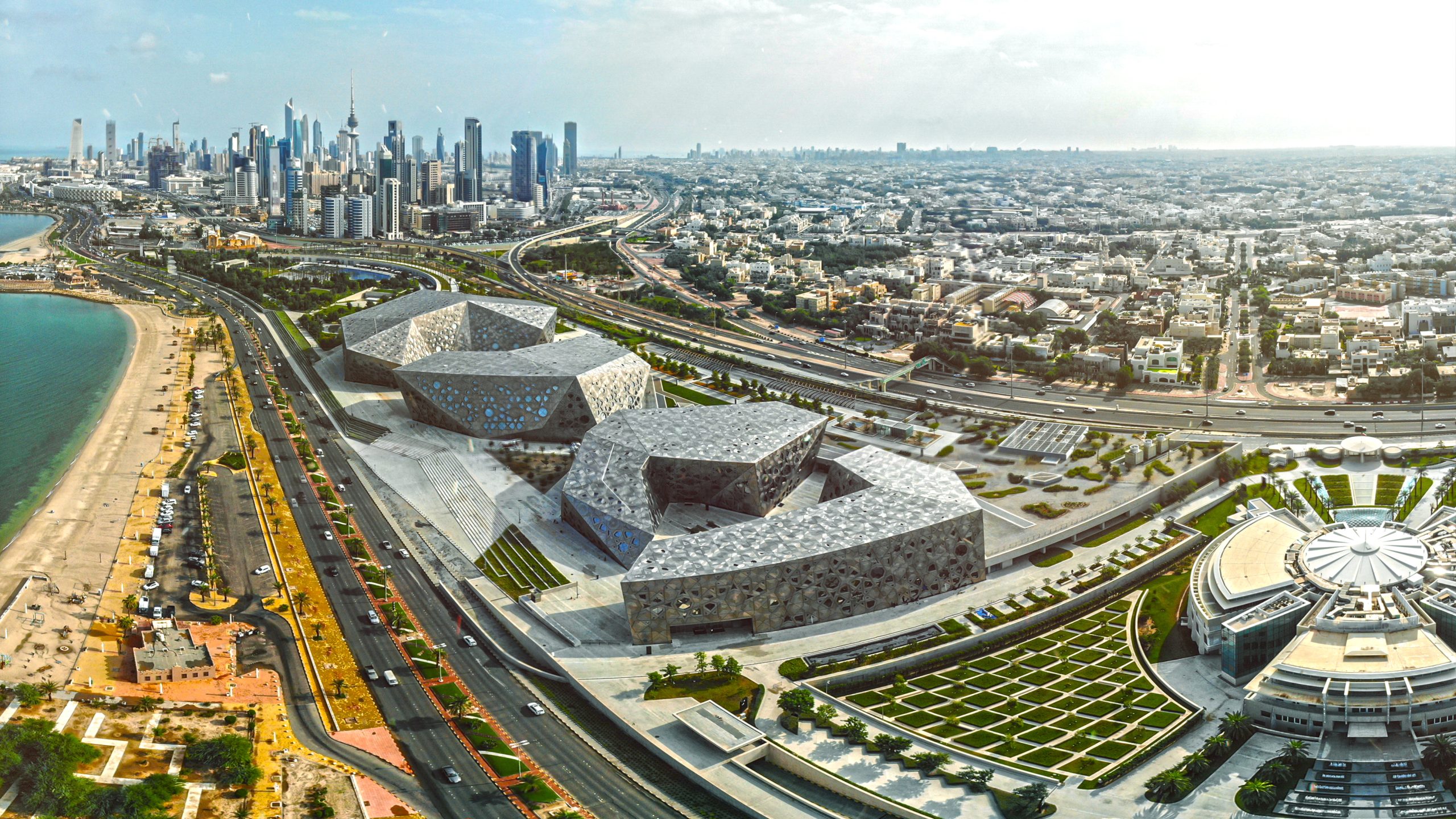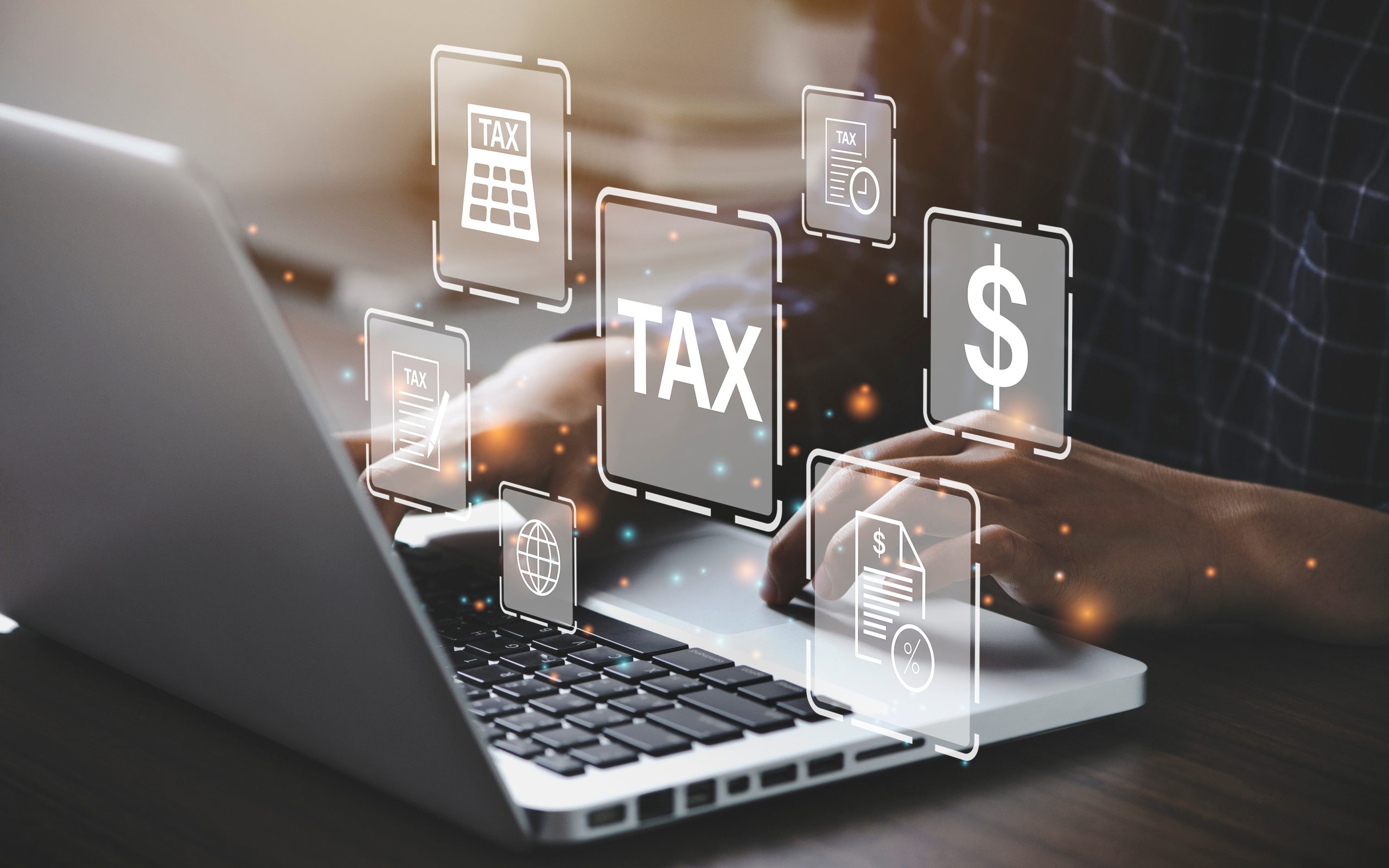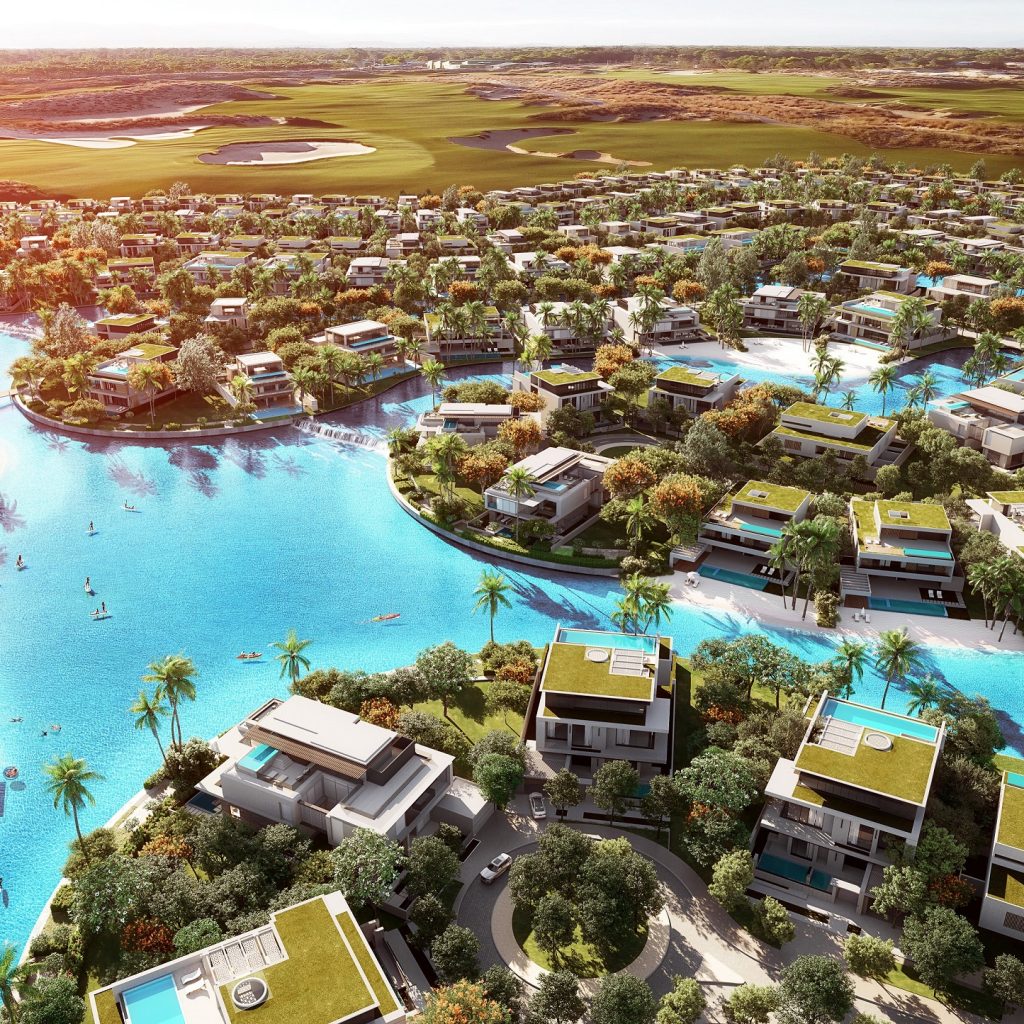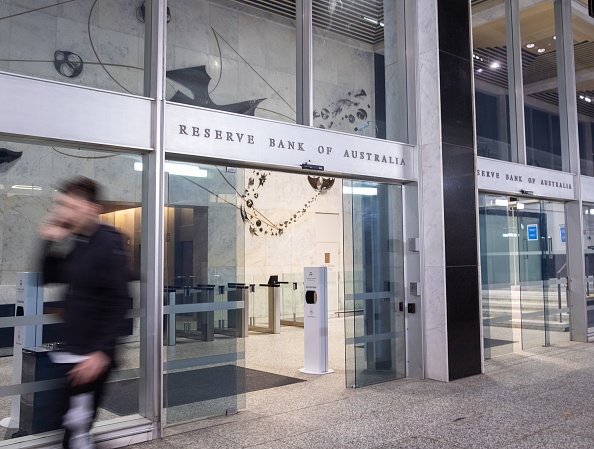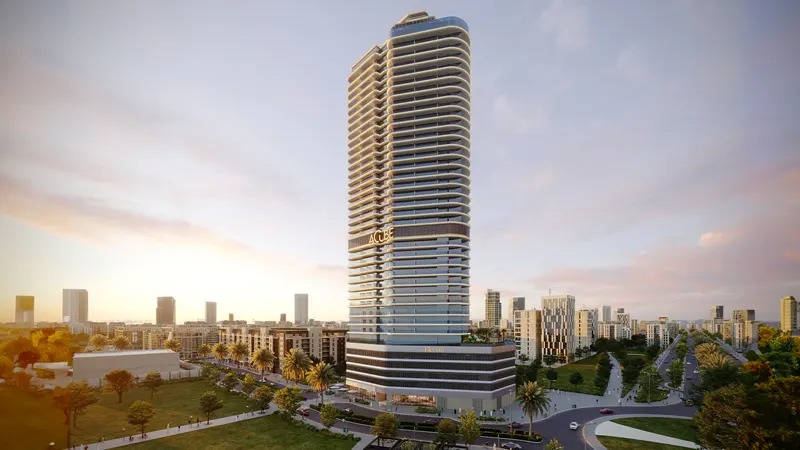THE MIDDLE EAST BECOMES THE WORLD’S ATM
Flush with cash from an energy boom, Saudi Arabia and other Gulf monarchies have a moment on the world’s financial stage
Five years ago, Saudi officials watched a wave of American finance executives pull out of a free investment confab in Riyadh after the murder of a dissident journalist made the kingdom a toxic place to do business.
This year, the conference, nicknamed “Davos in the Desert,” is expecting so much demand it is charging executives $15,000 a person.
Middle East monarchies eager for global influence are having a moment on the world’s financial stage. They are flush with cash from an energy boom at the very time traditional Western financiers—hampered by rising interest rates—have retreated from deal making and private investing.
The region’s sovereign-wealth funds have become the en vogue ATM for private equity, venture capital and real-estate funds struggling to raise money elsewhere.
The market for marquee mergers and acquisitions has seen a surge of interest from the region. Recently announced deals include an Abu Dhabi fund’s purchase of investment manager Fortress for more than $2 billion and a Saudi fund’s $700 million purchase of global lender Standard Chartered’s aviation unit.
Companies and funds overseen by Abu Dhabi’s national security adviser, Sheikh Tahnoun bin Zayed Al Nahyan, have made runs at buying Standard Chartered and investment bank Lazard. They have also struck recent deals to buy a $1.2 billion U.K. healthcare company and to take partial control of a nearly $6 billion Colombian food giant.
“Now, everybody wants to go to the Middle East—it’s like the gold rush in the U.S. once upon a time,” said Peter Jädersten, founder of fundraising advisory firm Jade Advisors. “It’s difficult to raise money everywhere.”
Fund managers visiting the region say they often wait across from rivals in waiting rooms of sovereign-wealth funds. Silicon Valley and New York managers are a near-constant presence in the white-marble floored lobby of the Four Seasons Abu Dhabi, as with other top hotels, they say.
The Riyadh conference next month—a pet project of Saudi Crown Prince Mohammed bin Salman known as the Future Investment Initiative—is expected to be a magnet for money hunters. In 2018, Wall Street executives backed out after Saudi operatives murdered journalist Jamal Khashoggi, and for years many startups and funds said they avoided investment from the country over moral concerns.
Some companies continue to steer clear of the kingdom, while human-rights groups say its record on treatment of government dissidents remains a serious problem.
But Saudi funding became more in demand last year when other money began to get tight. At last year’s conference the Public Investment Fund’s chief, Yasir Al Rumayyan, sat on a panel discussion with two of the world’s biggest investment-firm executives, Blackstone’s Stephen Schwarzman and Ray Dalio, founder of Bridgewater Associates. Top names in venture capital mixed on the floor, and FTX chief Sam Bankman Fried looked for funding.
Ben Horowitz, partner at Andreessen Horowitz, said at a PIF-sponsored conference this spring that Saudi Arabia was a “startup country,” and referred to Prince Mohammed as its “founder” who was creating a new culture and new vision for the country.
The region’s new dominance is most apparent among private funds, the type that lock up investors’ money for years. While detailed statistics are scarce, figures at two of the biggest sovereign funds suggest a surge. At Saudi’s PIF, commitments for “investment securities”—a category that includes private funds—rose to $56 billion in 2022, up from $33 billion a year earlier. Abu Dhabi’s Mubadala reported that equity commitments doubled to $18 billion in 2022.
Executives at private-equity giants TPG, KKR and Carlyle Group have told investors that interest from the Middle East remains strong while other parts of the world recede.
“If you’re in the U.S., there’s a certain degree of concern,” Carlyle CEO Harvey Schwartz said at a June conference. Middle East investors, he said, are “very front-footed, very dynamic.”
While the Middle East steps on the gas, the traditional backers of investment funds—pension plans and college endowments—are in retreat. The global shift to higher interest rates caused losses in the biggest parts of their portfolios—especially stocks and bonds.
Investors put $33 billion toward U.S.-based venture capital funds in the first half of 2023, less than half the $74 billion in the same period in 2021, according to PitchBook. Global fundraising for all private funds fell 10% last year to $1.5 trillion, according to Preqin—a decline many expect to continue.
“Fundraising has become much, much harder over the past 12 months,” said Brenda Rainey, an executive vice president at Bain & Co. who advises private-equity funds.
The reason for the region’s burst of funding and deal making is twofold.
Higher energy prices—a byproduct of Russia’s invasion of Ukraine—have given the region’s oil- and gas-dependent wealth funds tens of billions of dollars of extra money to spend. That means a drop in oil prices could quickly cause a pullback from the Gulf countries, as has happened in energy booms-turned-bust of the past.
At the same time, Saudi Prince Mohammed and top officials in the U.A.E. have jostled for greater sway on the world stage—in geopolitics, finance and sports—pumping additional money into their wealth funds to do deals and expand industry at home.
The intersection of politics and finance in the region has led Gulf wealth funds from Saudi Arabia, the U.A.E. and Qatar to be the main financial backers of two key Trump administration figures: Jared Kushner and former Treasury Secretary Steven Mnuchin, who together raised billions of dollars from the region.
Gulf funds have pushed their U.S. peers to open offices in the region to more easily win investments, fund managers say.
BlackRock has said it would create a team on the ground in Riyadh dedicated to boosting investment into infrastructure projects in the Gulf.
Millennium Management LLC, based in New York, set up an office in Dubai in 2020 and others followed, including private-equity firm CVC Capital Partners and ExodusPoint Capital Management, the largest-ever hedge-fund startup with $8 billion in initial capital. Europe’s Tikehau Capital and Ardian both established teams in Abu Dhabi, and U.S. alternative investment manager, Pretium, hired a local industry veteran from Dubai.
Dalio also set up an office in Abu Dhabi for the Dalio Family Office, his personal venture. Rajeev Misra, a longtime financier for SoftBank Group who secured over $6 billion in commitments for a new venture from multiple Abu Dhabi-aligned investment funds, is moving to the U.A.E. from the U.K., according to people familiar with his plans.
There is now an “awareness that relationships have to be built and that doesn’t happen overnight,” said Joseph Morris, a Dubai-based managing director at U.S.-based advisory firm Newmark Group.
The venture capital arm of Tiger Global has struggled to raise its latest fund, repeatedly cutting its target by billions of dollars. Stung by losses and the cooler fundraising environment, many U.S. investors have given it the cold shoulder, investors say.
One place it found success: Saudi Arabia. A division of PIF, Sanabil, this spring added Tiger’s name to the public list of fund managers it backs. Others on the list include Peter Thiel’s Founders Fund and Andreessen Horowitz.
Ibrahim Ajami, who oversees startup investments at Abu Dhabi state fund Mubadala, which invests in companies as well as funds, said the environment gives Mubadala the ability to be “very thoughtful and selective” about who it backs.
He can negotiate terms that let Mubadala buy a stake in the fund manager itself, he said, or allow it to invest alongside others.
“What we are doing is going deeper—and more concentrated and more engaged—with a select group of managers,” he said.
—Summer Said and Berber Jin contributed to this article.
Copyright 2020, Dow Jones & Company, Inc. All Rights Reserved Worldwide. LEARN MORE
 Copyright 2020, Dow Jones & Company, Inc. All Rights Reserved Worldwide. LEARN MORE
Copyright 2020, Dow Jones & Company, Inc. All Rights Reserved Worldwide. LEARN MORE
Chris Dixon, a partner who led the charge, says he has a ‘very long-term horizon’
Americans now think they need at least $1.25 million for retirement, a 20% increase from a year ago, according to a survey by Northwestern Mutual
This agreement aims to foster the development of robust partnerships between the communities of both regions.
The Australian Chamber of Commerce and Industry has recently signed a Memorandum of Understanding (MoU) with the Dubai Chambers, marking a significant step towards enhancing cooperation and strengthening economic and trade relations between Dubai and Australia. This strategic agreement aims to foster the development of robust partnerships between the business communities in both regions.
In today’s interview, we will delve with Mr. Lyall Gorman, Vice President of the Australian Chamber of Commerce and Industry, into the objectives and anticipated impacts of this MoU, explore the key initiatives and projects that will arise from this collaboration, and discuss the potential challenges and strategies for overcoming them.
We will also look into how this agreement aligns with the broader strategic goals of the Australian Chamber of Commerce and Industry and the future of trade relations between Australia and the Middle East.
Can you give us a brief overview of the MoU signed with the Dubai Chamber? What are the main objectives?
The MoU we signed is designed for the two chambers to collaborate for mutual benefit and interest, focusing on business-to-business interactions. We are currently exploring opportunities around delegations, information sharing, trade, commerce, and e-commerce. The main goal is to bring businesses together in a structured manner to share ideas and encourage positive outcomes.
This partnership aims to increase the understanding of each other’s economies, recognize opportunities in each other’s regions, and work together to create mutual benefits. By doing that, we hope to enhance the economic ties between Dubai and Australia, leveraging each other’s strengths to create a more dynamic and prosperous business environment.
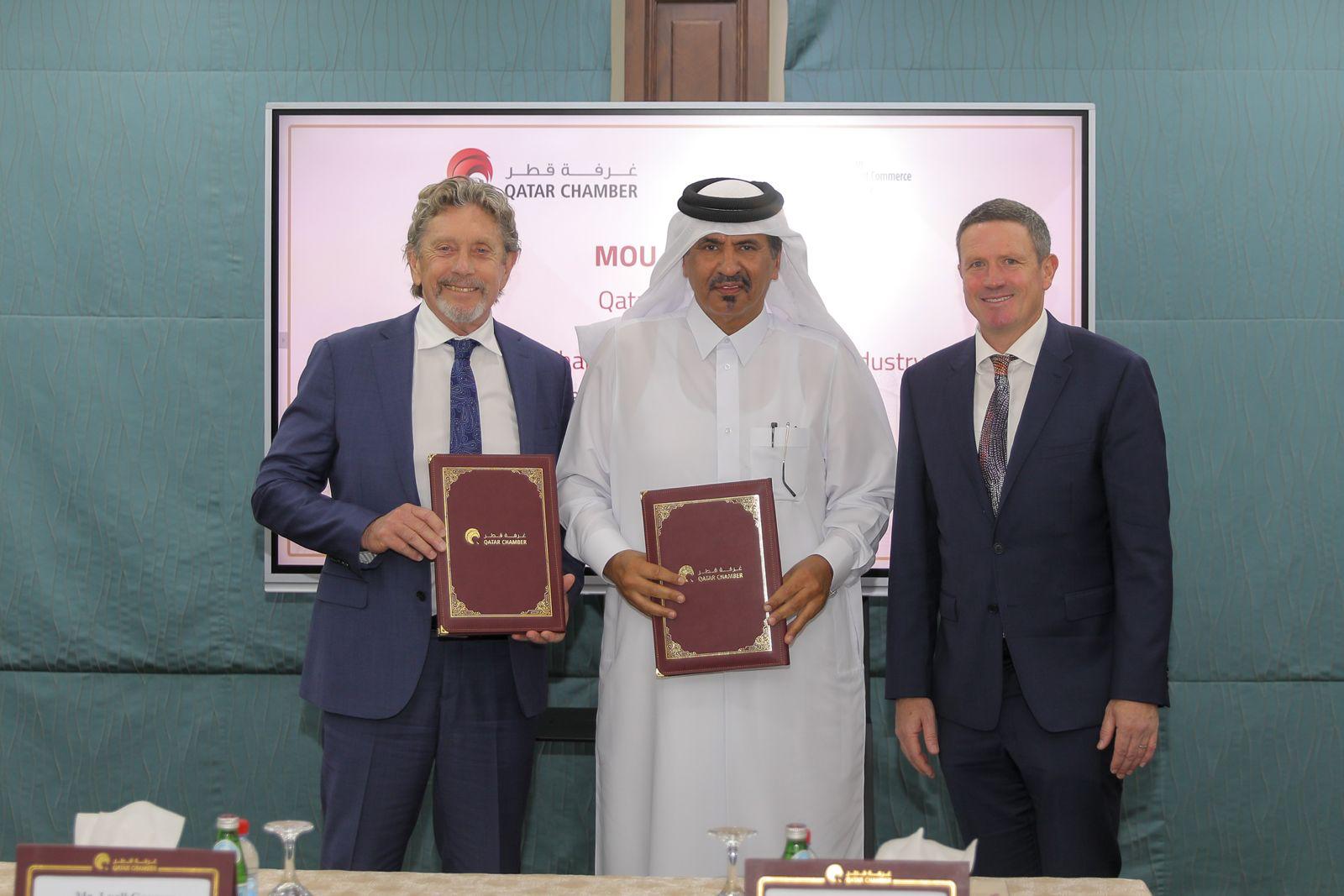
How do you see this MoU impacting trade relations between Australia and Dubai in the short and long term?
In the short term, we are expecting to generate a significant increase in awareness. By sharing information, data, and demographic insights, we will gain a better understanding of each other’s economic environments. This will help us identify existing opportunities for collaboration and potential mutual investment. From a trade perspective, we anticipate increased exports from Australia to Dubai and vice versa. This could include areas such as disruptive technology, medical research, education, construction, and agriculture—sectors that are currently emerging and critical.
In the long term, this enhanced understanding and collaboration will allow us to identify and capitalize on more opportunities. It’s about recognizing what’s happening in each other’s regions, understanding potential opportunities, and working together to create economic value. By fostering a deeper economic connection, we aim to create sustainable growth and mutual benefits over time.
What sectors or industries do you see as the primary beneficiaries of this partnership?
There are several mutual opportunities we aim to explore. Dubai has evolved incredibly over the last 20 years, achieving remarkable growth. However, there are still areas where further cooperation can drive growth. Some of the key initiatives will focus on sectors such as AI, digital disruptive technologies, smart technologies, financial services, education, construction, and advanced technologies.
Australia is highly regarded for its building codes and manufacturing capacity, especially in the construction sector. Additionally, I believe food security presents an interesting opportunity. As a major exporter of meat and other food products, Australia can contribute significantly to food security discussions, which is particularly relevant for Dubai.
Education is another area with significant potential for collaboration. By exploring these sectors, we aim to implement projects that not only address current challenges but also pave the way for sustainable development and innovative solutions in both regions.
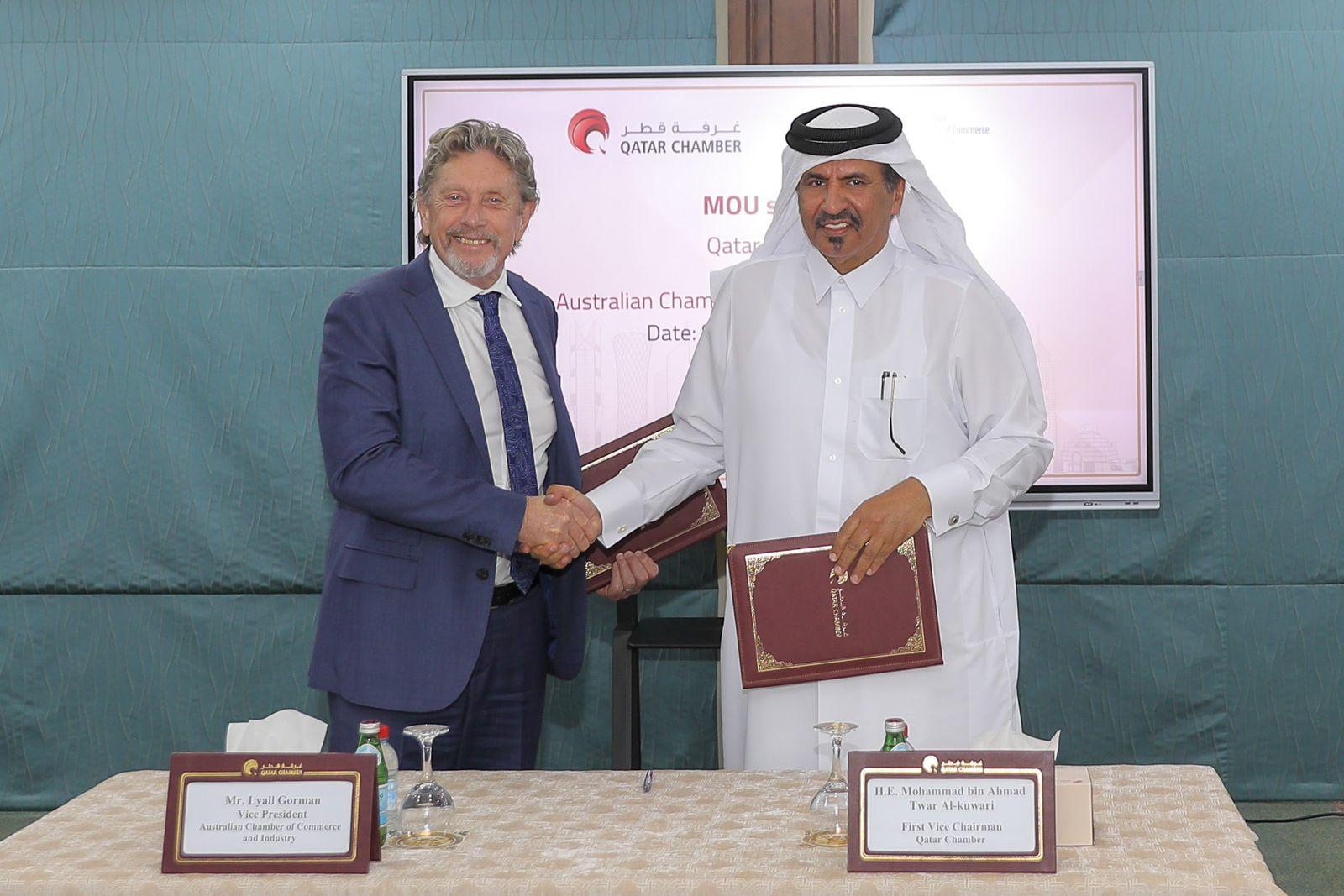
What challenges do you foresee in the implementation of this MoU, and how do you plan to address them?
The cultural differences can impact how business is conducted, and this requires careful navigation. To address this, we need open and transparent communication, fostering a spirit of collaboration and mutual respect. It’s essential to have a genuine desire to embrace each other’s cultural differences and find common ground.
Another potential challenge is ensuring that both sides fully understand and adapt to each other’s regulatory environments and market dynamics. Dubai has matured significantly into a global business and corporate hub, which helps, but there are still differences to consider.
By prioritizing understanding and respect, and committing to ongoing learning from each other, we can effectively manage these challenges. Working together in a considerate and respectful manner will be crucial in overcoming any hurdles that may arise during the implementation of this MoU.
How does this MoU align with ACCI’s broader strategic goals for international trade and collaboration?
This MoU aligns closely with ACCI’s broader strategic goals by emphasizing the importance of fostering and diversifying economic partnerships on a global basis. The current global geopolitical situation has underscored the need for diversifying our supply chains and business relationships.
From an Australian perspective, the lessons learned during the COVID-19 pandemic and the evolving geopolitical environment have further highlighted the necessity of expanding our economic partnerships.
The Middle East, including the GCC, are regions where Australia already has strong relationships that can be further strengthened. Therefore, by working together, collaborating, and sharing knowledge and forward-thinking ideas, this MoU will help us identify and shape initiatives that add value and align with our strategic goals for international trade and collaboration.
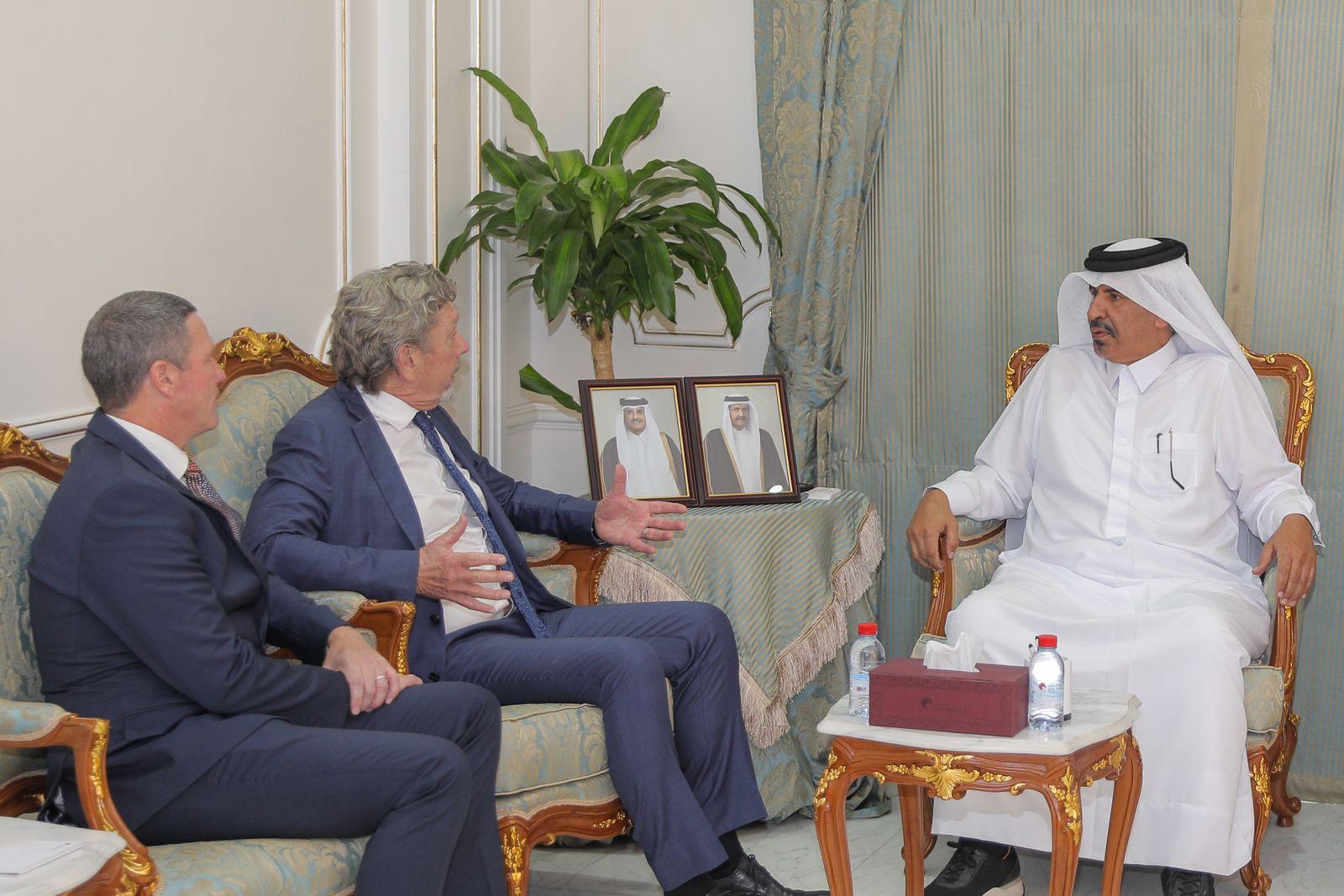
How do you envision the future of trade relations between Australia and the Middle
I believe it will become stronger, more robust, and more regular, all for mutual benefit. There is a genuine willingness between both regions to grow and expand this relationship through a partnership model rather than a transactional one. This approach involves setting short, medium, and long-term goals, fostering a thriving and enduring relationship.
We have already established a strong partnership with Dubai Chambers and maintain a good relationship with the Dubai International Chamber here in Australia, led by Sophia Demetriades Toftdahl. This aligns with our strategic goal of global diversification in business.
Additionally, we recently signed an MoU with the Qatar Chamber and are about to sign with the Abu Dhabi Chamber as well.
Engaging with Saudi Arabia also makes sense, as it is a significantly emerging country. The last few years under new leadership have brought clarity to its economic, political, and social future and a strong passion and drive to become a major player in the region and global stage
Chris Dixon, a partner who led the charge, says he has a ‘very long-term horizon’
Americans now think they need at least $1.25 million for retirement, a 20% increase from a year ago, according to a survey by Northwestern Mutual









